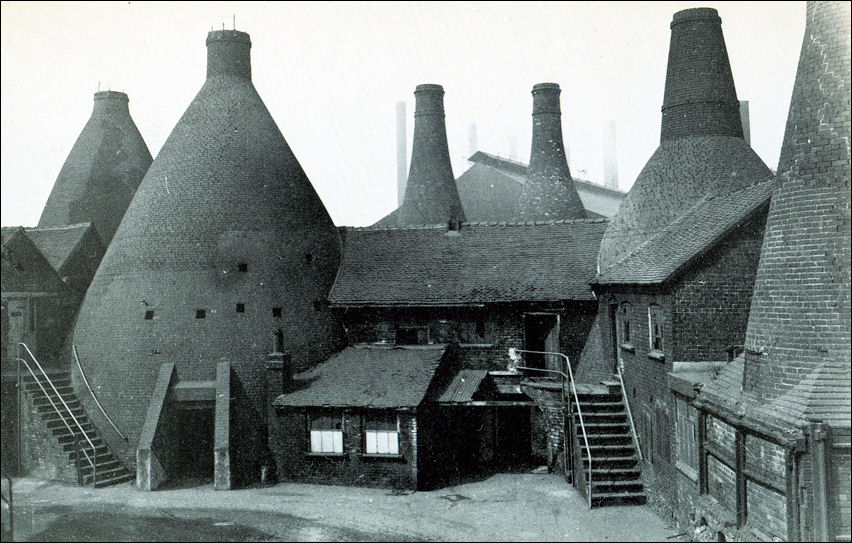Founded in 1759 in Stoke-on-Trent by Josiah Wedgwood. His family remained
involved in the company for more than 150 years. Famous ware includes the
Queen’s Ware and Jasper ceramic ranges.
After he manufactured a cream-coloured tea and coffee service for Queen
Charlotte, wife of George III, she allowed him to style himself "Potter to
Her Majesty" and to call his new cream ware Queen's Ware.
Josiah also created Black Basalt, a fine black porcelain, which enabled
him to produce copies of the newly excavated Etruscan pottery from Italy.
His invention of a new stoneware called Jasper has been described as the
most important development in the history of ceramics since the Chinese
discovery of porcelain nearly 1,000 years earlier. He employed many
notable artists including George Stubbs to design bas-reliefs, often
imitating classical Greek motifs.
In 1766 he built a new factory in Staffordshire which he called
Etruria, as well as a Georgian mansion, Etruria Hall, for his family. The
opening of Etruria on 13 June 1769 was celebrated with the throwing of six
so-called First Day's Vases.
After Josiah invented the pyrometer, a device for measuring higher
degrees of heat in kilns, he was elected to the Royal Society in 1783. His
last major ceramic achievement was the Portland Vase, produced in 1789 - a
facsimile of a famous Roman cameo glass vase known as the Barberini.
The 19th century saw the introduction of the first coloured earthenware
and the manufacture of bone china. Wedgwood provided a bone china dinner
service ordered by US President Theodore Roosevelt for the White House.
During the 1930s, the fifth Josiah Wedgwood
decided to built a new, modern factory at Barlaston in Stoke-on-Trent.
Production started in the 1940s and has continued at the site ever
since. Wedgwood merged with the well-known Irish brand Waterford
Crystal in the 1980s to create Waterford Wedgwood. In January 2009
Waterford Wedgwood went into administration - it was purchased by KPS
Capital in March 2009 and so the famous brand name was saved.
Josiah Wedgwood I is
depicted wearing contemporary dress of frock coat, buckled shoes,
breeches and wig.
He holds a copy of the Portland Vase, a Roman artefact in glass, of
which his Burslem Manufactory made 50 reproductions in 1790.
Josiah Wedgwood I
(1730-1795) was born in Burslem, now one of the six towns of 'the
Potteries' or Stoke-on-Trent, Staffordshire.
After completing an apprenticeship he opened a successful manufactory in
Burslem in 1759, and in 1769 another one near Hanley, which he called
'Etruria' in the incorrect belief that Greek vases were Etrusacan in
origin. Etruria included a model factory, workers village and mansion.
A relief in Stoke
Church by John Flaxman (1755-1826) records that he, 'converted a rude
and inconsiderable Manufactory into an elegant Art and An important part
of the National Commerce'.
